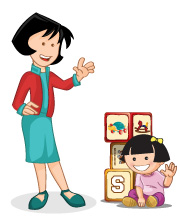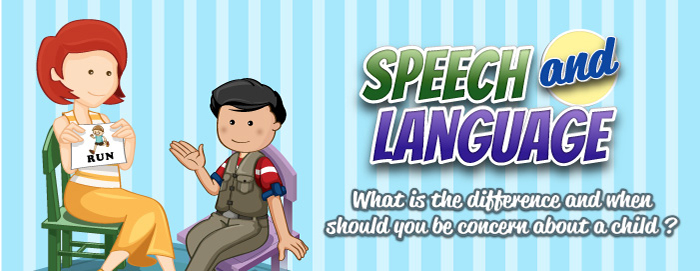It is important to have regular checkups with developmental and hearing specialists to ensure your child’s development is progressing appropriately. Concerns may be raised by your family doctor, professionals who work with your child, e.g. teachers and support staff, or from your friends and family regarding your child’s ability to; understand/follow instructions, communicate their thoughts/ feelings/ wants/ needs or their ability to interact with their peers (social communication).

Speech and language therapy may begin at any age.
- In babies, it may be needed to address feeding or swallowing difficulties which can cause difficulties in early development and well being.
- Communication (understanding and using language) therapy for children whose language is delayed from an early age will typically begin from 18-24 months, though children are often seen at a later stage as difficulties become more apparent.
- Children with speech difficulties are usually seen from the age of 3 years, though this depends on the nature of the difficulty.
Quite often parents and teachers will report concerns about a “speech delay”. However, during assessment it may become clear that the child has a language delay. Are they not the same thing? No. Speech and language are very different.
Language is made up of socially shared rules that include the following:
What words mean (e.g., “star” can refer to a bright object in the night sky or a celebrity) How to make new words (e.g., friend, friendly, unfriendly) How to put words together (e.g., “Peg walked to the new store” rather than “Peg walk store new”) What word combinations are best in what situations (“Would you mind moving your foot?” could quickly change to “Get off my foot, please!” if the first request did not produce results) 
Speech consists of the following:
Articulation- How speech sounds are made (e.g., children must learn how to produce the “r” sound in order to say “rabbit” instead of “wabbit”). Voice- Use of the vocal folds and breathing to produce sound (e.g., the voice can be abused from overuse or misuse and can lead to hoarseness or loss of voice). Fluency- The rhythm of speech (e.g., hesitations or stuttering can affect fluency).
|









